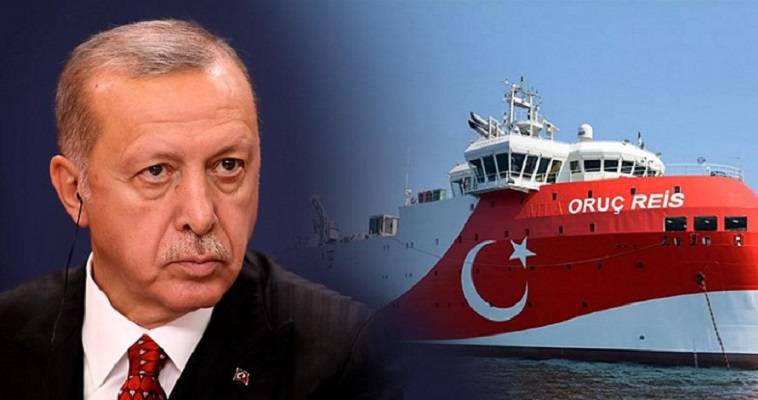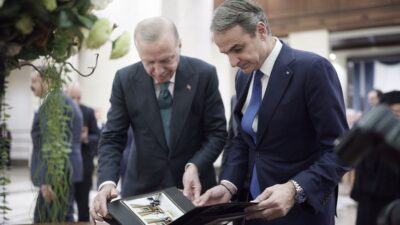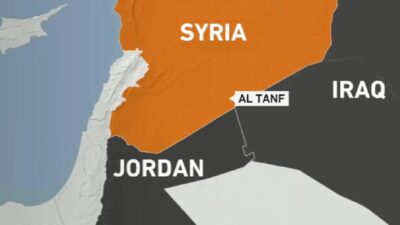Stavros Lygeros: What is the price for de-escalation?
28/07/2020
For a few days now the signs for a de-escalation on the Greek-Turkish front were apparent. German mediation, and secondarily US mediation brought about the result Athens was seeking. This was not just the result of Ms Merkel’s phone calls. More so, it was the result that Athens did not hesitate to mobilize the Hellenic Armed Forces, in such a manner as to send the message to Ankara, that Greece was resolute in defending its sovereign rights, even through the use of military means.
This was not just the result of Ms Merkel’s phone calls. More so, it was the result that Athens did not hesitate to mobilize the Hellenic Armed Forces, in such a manner as to send the message to Ankara, that Greece was resolute in defending its sovereign rights, even through the use of military means.
Washington and Berlin decry Erdogan’s actions. However, both advise Athens to negotiate with Ankara. They do not say that it should negotiate on Greek sovereign rights, but in reality, this is what it’s all about, since only Greek sovereign rights are the only thing on the table. In reality, they are advising Athens to “give” something to Turkey to avoid a confrontation.
Ankara seeks, in a first phase, through negotiations, to legitimize its unilateral contentions, and in a second phase to abrogate as many Greek sovereign rights it can.
What did Turkish presidency spokesman Kalin say when announcing the “freeze” on Turkish seismic research? He said that “neither Turkey, nor Greece, would conduct research in contested maritime areas. He used the term “contested”, not “non-delineated”.
Whoever has, even basically, has been following Greek-Turkish relations, knows that “graying” precedes any division that Ankara is pursuing. What Kalin said about neither Greek, nor Turkish research is essentially a repetition of what had been agreed upon through the Bern protocol in 1976, which foresaw that neither Greece, nor Turkey would undertake research in the Aegean. Through some other way, in another form, we saw the same thing during the Imia crisis.
In this way, Greek areas are transformed into “gray zones”. Erdogan was very clear. What did he say, a few days ago? Either you will enter the field and pay the price, speaking indirectly, but very clearly, of war, or you will negotiate with the aim of sharing. The crucial question is to what extent is Athens willing to go.
Undoubtedly, it is positive that the prospect of such a confrontation has become more distant. But what is the price? The price that has been paid, or will be paid. What has Athens already agreed to? Or what it has appeared, through Berlin, willing to agree upon?
A Greek-Turkish confrontation will be disastrous, and not just for Greece, but also for Turkey. Therefore the de-escalation achieved is to the mutual benefit. Therefore, Ankara is trying to peddle this de-escalation as a favor being offered to Greece and for this favor it is asking for ransom.
The Hellenic Armed Forces are not the Kurdish militias in Syria, neither are they Haftar’s haphazard, we could say, army in Libya. They are in a position to carry out destructive blows to their opponent. Erdogan knows this very well.
In any case, we should not forget that Turkey is, objectively, in a tight spot. Having gotten stuck on the Libyan front, it is possible that Erdogan may seek an easy victory over Greece. Athens has no reason to offer him this. In fact, it has every reason, especially at this time, to gain time.
Erdogan is staking very much on the fact that Trump is in the White House at this point. The Us is holding elections in November. Polls show Biden will be the winner. So, he must push Athens to some sort of cunning maneuver to gain time.
If Biden wins, it is almost certain that US policy vis-a-vis Turkey will “harden”. We will see to what extent and how much. It is certain that things will be very different than they are now. This means that the current pressure on Erdogan will become much more acute. Even more so, since France has entered a path which it seems bent upon following. In other words, it has crossed the Rubicon as concerns its relations with Turkey. And France is not at all willing to let Turkey fill the gap in the eastern Mediterranean. France wants to fill this gap itself.
Therefore the conflict between France and Turkey has a very sound base, and everything points to the fact that it will be exacerbated I the future.
All of this leads to the conclusion that it is in Greece’s best interest to bide its diplomatic time. Everything points to the fact that things for Erdogan will become harder, therefore the margins for Athens’ movements will grow.





